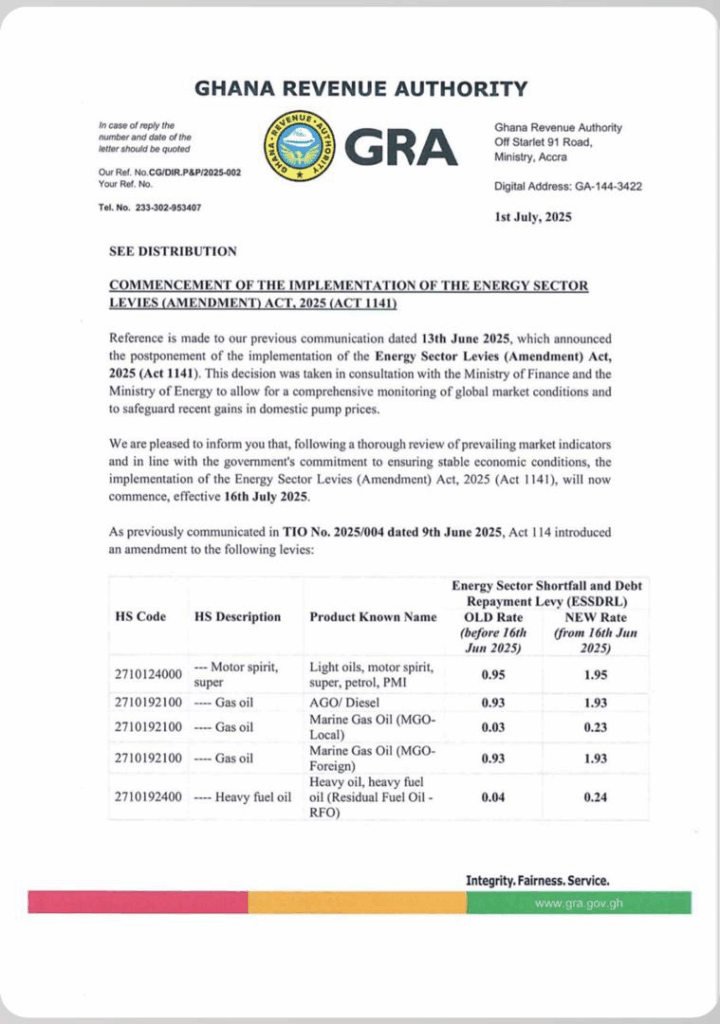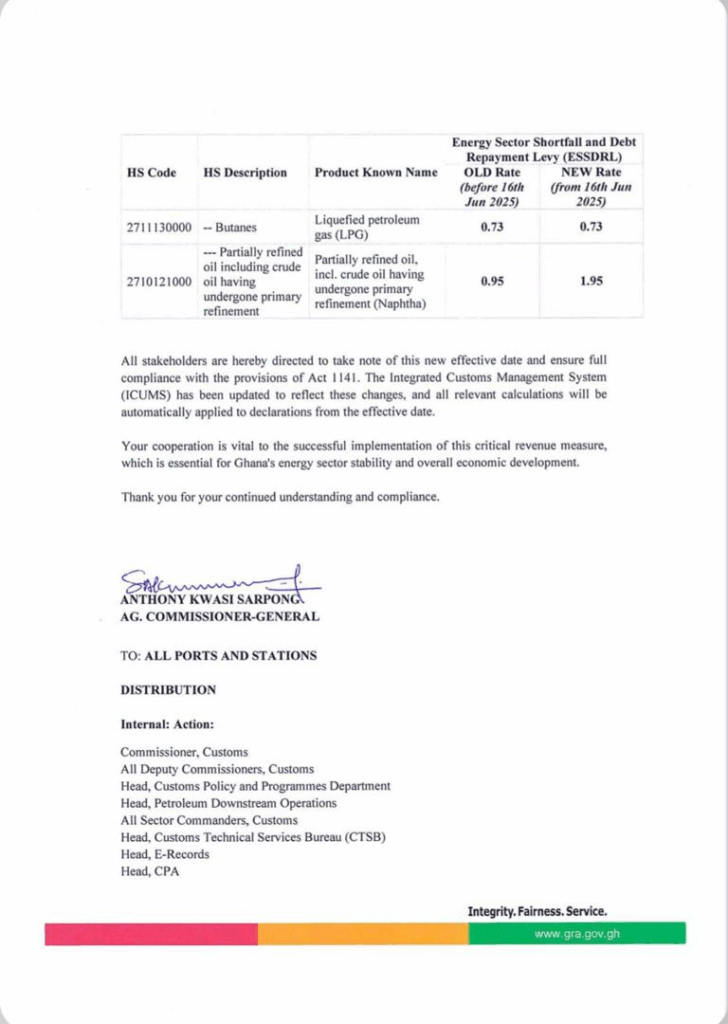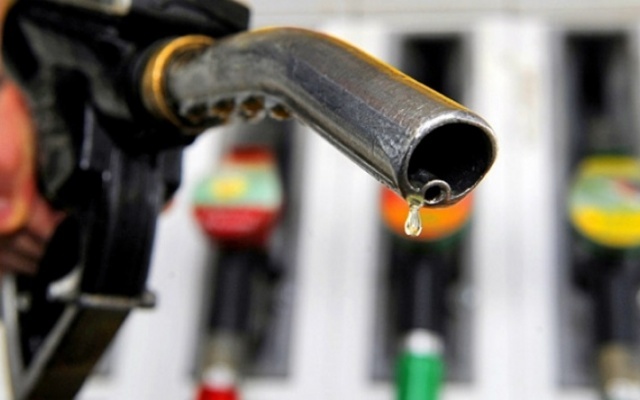GRA sets July 16 for implementation of postponed Energy Sector Levy Amendment

The Ghana Revenue Authority (GRA) has announced that the implementation of the Energy Sector Levies (Amendment) Act, 2025 (Act 1141), will officially begin on July 16, 2025, following a temporary suspension last month.
In a statement signed by Acting Commissioner-General Anthony Akwasi Sarpong, the Authority referenced its earlier communication on June 13, which disclosed the government’s decision to postpone the levy’s rollout.
That move, the GRA explained, was done in consultation with the Ministry of Finance and the Ministry of Energy, to allow for closer monitoring of global market conditions and protect the progress made in stabilising local fuel prices.

“Following a thorough review of prevailing market indicators and in line with the government’s commitment to ensuring stable economic conditions,” the GRA said, “the implementation of the Energy Sector Levies (Amendment) Act, 2025 (Act 1141), will now commence, effective 16th July 2025.”
The Authority has directed all stakeholders—especially importers, fuel distributors, and customs agents—to take note of the new date and ensure full compliance with the provisions of the amended law.
The GRA also noted that the Integrated Customs Management System (ICUMS) has been updated to reflect the changes under Act 1141.

As such, all customs declarations made from July 16 onwards will automatically incorporate the revised levy calculations.
Describing the levy as a “critical revenue measure,” the GRA emphasised its importance in sustaining Ghana’s energy sector and supporting broader economic development.
The Authority further appealed to industry players and the general public for continued cooperation, stressing that the smooth rollout of Act 1141 is essential for maintaining macroeconomic stability and ensuring energy sector resilience.
The Energy Sector Levies (Amendment) Act, 2025, introduces revised provisions aimed at bolstering revenue mobilisation for energy infrastructure and debt repayment, while aligning with global pricing realities and national economic goals.




